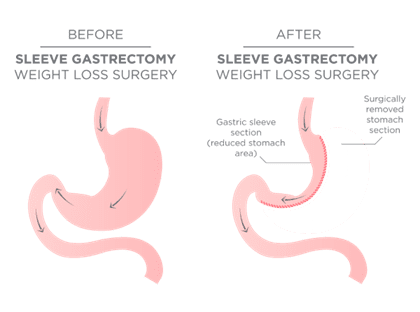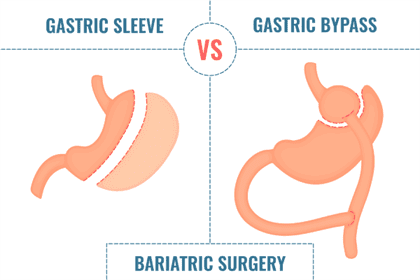Terms of Use and Privacy Policy
Protection of Personal Data is among the priorities of VISSITA SAĞLIK TURIZM VE TICARET A.Ş.Necessary care is given to the security of personal data, and great importance is attached to the privacy of our addressees and the protection of all personal data belonging to our addressees by processing them in the best way and with care. Data of our adressees, all our employees and employees of the institutions and organizations we cooperate with can be processed in accordance with the European Acquis, Law on Protection of Personal Data No. 6698 and other legislation. According to the relevant legislation, it has been adopted as a corporate policy to protect personal data within the framework of the following basic principles.
- Processing in accordance with the rules of law and honesty,
- Keeping personal data accurate and up-to-date when necessary,
- Processing personal data for specific, clear and legitimate purposes,
- Connected, limited and measured processing of personal data for the purpose for which they are processed,
- Retaining Personal Data for the Period Required for the Purpose stipulated in the Legislation or for the Purpose for Which They were Processed,
- Informing personal data owners,
- Establishing the necessary system for personal data owners to exercise their rights,
- Taking necessary precautions to protect personal data,
- In line with the requirements of the purpose of processing personal data, to act in accordance with the relevant legislation and PDP Board regulations,
- Displaying the necessary sensitivity to the processing and protection of personal data with private nature,
- Deletion and destruction of personal data in a legally defined manner and time
1. Obtaining, Processing and Processing Purposes of Personal Data
Your personal data are obtained by means of verbal, written, visual or electronic media, call center, website, verbal, written and similar channels in accordance with the performance of the services provided by us, our company's services and fields of activity. Your quality personal data with private nature and general quality personal data may be processed by us in a limited and measured manner in connection with the purposes set forth in this article, including but not limited to the following:
- Your identity information:Your name, surname, ID number, passport number or temporary ID number, place and date of birth, marital status, gender, insurance or patient protocol number, and other identification data by which we can identify you.
- Your Contact Information:Your address, telephone number, e-mail address and other communication data, your voice call records kept by customer representatives or patient services in accordance with call center standards, and your personal data obtained when you contact us via e-mail, letter or other means.
- Your Health Information:All your personal data regarding health obtained during or as a result of medical diagnosis, treatment and care services, including but not limited to your laboratory results, test results, examination data, appointment information, check-up information, prescription information.
- Your Health Information:Your related data and Social Security Institution data.
- Your personal datayou enter https://www.vissita.com
All kinds of personal data obtained by VISSITA SAĞLIK TURIZM VE TICARET A.Ş. (including but not limited to sensitive personal data) may be processed for the following purposes:
- Confirming your identity,
- Measuring, increasing and researching patient satisfaction by the Patient Rights, Patient Experience departments.
- Informing you about the appointment if you make an appointment.
- Performing risk management and quality improvement activities,
- Financing your health services, meeting your examination, diagnosis and treatment expenses by the Patient Services, Financial Affairs, Marketing departments, sharing the information requested with private insurance companies within the scope of the deserving query.
- Making research.
- Fulfillment of legal and regulatory requirements.
- Sharing requested information with private insurance companies within the scope of financing health services.
- Carrying out risk management and quality improvement activities by the Departments of Quality, Patient Experience, Information Systems.
- Invoicing for our services by the Departments of Patient Services, Financial Affairs, Marketing and confirming your relationship with the contracted institutions.
- Providing campaign participation notice and campaign information by the Departments of Marketing, Media and Communication, Call Center, designing and transmitting special content, tangible and intangible benefits on web and mobile channels.
- Providing medical treatment information in our annual report, newsletters, social media accounts and other emails with industry news, seminars and events is based on our legitimate interest in marketing our services.
- Photo and video recording from one of our events, seminars and mixed events is based on our legitimate interest in marketing our medical treatment services through our various channels.
- We process your personal data when necessary to fulfill a contract with you or to respond to your request for services, or when we have another legitimate and legal interest in processing your personal data, such as marketing our services.
- If we process your personal data for any purpose that requires your consent, we will obtain your prior consent. For example, it may be necessary to provide certain personal information so that we can provide a service or fulfill another request from you. In this case, it will be stated or specified in connection with the data collected.
- Your Personal Data obtained and processed pursuant to the relevant legislation shall be sent to VİSSİTA SAĞLIK TURİZM VE TİCARET ANONİM ŞİRKETİ and protected in both digital and physical environment by being transferred to the physical archives and/or information systems of the company.
2. Transfer of Personal Data
Your personal data is provided by VISSITA SAĞLIK TURIZM VE TICARET ANONIM ŞİRKETİ within the scope of the Law and other legislation and for the purposes mentioned above, in order to develop the services for the above-mentioned purposes, including private insurance companies, Ministry of Health and its departments, Social Security Institution, Security General Directorate and other security forces, General Directorate of Population Registry, Turkish Union of Pharmacists, courts and all kinds of judicial authorities, central and other third parties, your authorized representatives, the third parties we consult, including the lawyers, tax and financial advisors and auditors, regulatory and supervisory institutions, official authorities; or It may be shared with our business partners and other third parties that we cooperate to carry out our services.
3. Method and Legal Reason for Obtaining Personal Data
Your personal data, by our Company in any verbal, written or electronic media, in line with the above-mentioned purposes, is collected in order to provide and develop the products and services offered, to carry out our commercial activities and to fulfill our Company's contractual and legal responsibilities completely and accurately. Your data collected through various methods such as surveys, websites, employees and representative offices, mobile applications and similar channels explained in our Clarification Text and for various legal reasons, within the scope of the conditions and purposes listed in Articles 5 and 6 of the PDPL, and can be processed and transferred for the purposes specified in the articles number (I) and (II).
4. Your Rights for the Protection of Personal Data
In accordance with the law and relevant legislation;
- You have the right to learn whether personal data has been processed or not,
- to request information if personal data has been processed;
- to access and request personal health data,
- to learn the purpose of processing personal data and whether they are used in line with their purpose,
- to receive information on the third persons to whom the personal data is transferred within and out of the country,
- to request the rectification of the data in the event they are processed incompletely or inaccurately,
- to request deletion or destruction of personal data,
- to request notification of the third parties to whom the personal data has been transferred, regarding the correction of personal data and/or the deletion or destruction of personal data in case of incomplete or incorrect processing,
- to object to any adverse result arising as a consequence of analysis of processed data solely by means of automatic systems.
If you exercise one or more of your aforementioned rights, the relevant information will be communicated to you in a clear and understandable way in writing or electronically, through the contact information provided by you.
5. Data Security
VISSITA SAĞLIK TURIZM VE TICARET ANONİM ŞİRKETİ protects your personal data in full compliance with all technical and administrative security measures that must be taken in accordance with information security standards and procedures. The said security measures are provided at a level appropriate to the possible risk, taking into account the technological possibilities.
6. Complaint and Communication
Your personal data is carefully protected within the technical and administrative means and necessary security measures are taken at a level appropriate to possible risks, taking into account the technological possibilities. Your can notify your requests under the law, by filling out the "Application Form in accordance with the Law on the Protection of Personal Data" on the web address https://www.vissita.com;
- You can send a petition bearing your wet signature to the address Harbiye Mah.Asker Ocağı Cad. Süzer Plaza No:6/160 Şişli /İstanbul/Turkey by writing "Information Request Under the Law on Protection of Personal Data" to the attention of the "Public Relations" department,
- You can send it by means of a notary public,
- with a secure electronic or mobile signature, through your registered e-mail address or your e-mail address registered in our system to https://www.vissita.com address, and/or
- By signing a file that you write to our company in the "word or pdf" format with a secure e-signature and sending it to our e-mail info@vissita.com by writing "Personal Data Protection Law Information Request" in the subject line.
7. Information files (cookies)
To optimize our website, we use the so-called session cookies. Session cookies are small text files that are sent from the appropriate servers and stored temporarily on your hard drive when you visit a website. These files contain a so-called session identifier, through which various requests from your browser can be linked in a shared session. This will allow you to recognize your computer when you re-enter our website. Once your browser is closed, these cookies will be deleted. For example, with their help you can use the shopping cart function when visiting several pages. We also use a small amount of persistent cookies (also small text files stored on your device) that remain on your device and allow us to recognize your browser during your next visit. These cookies will be stored on your hard drive and will be deleted after a specified time. With the help of cookies we can present our offer to you in a more convenient, efficient and safe way, for example, to show you a page with the information corresponding to your interests.
Cookies store the following data and information: Information about the user name, language settings, entered search words, information on the number of visits to our website and the use of individual functions of our website.
When the cookie is activated, it is assigned an identification number without any binding of your personal data to it. Your name, surname, IP-address or similar data, which could serve for establishing communication between you and cookies, is not included in the cookie. With the help of cookie technology, we get only pseudonymous data, for example, what pages of our store you have visited, what products you were interested in, etc. You can configure your browser in such a way that you will be notified in advance about the forthcoming placement of cookies on your device and decide in each case whether to exclude the reception of cookies in certain cases or at all, or completely block the maintenance of cookies. Such actions may result in the limited functionality of the website.
8. Google Analytics
We use Google Analytics, which is an online analysis service provided by Google Inc. Google Analytics uses the so-called cookies, which are text files stored on your computer and allowing to analyze your use of our website. The cookie generated information about the use of this website by visitors. Google will use this information on our behalf to evaluate your use of the website, collect reports on the operation of the website and provide us with other services related to the operation of the website and the use of the Internet. The IP address transferred from your browser to the Google Analytics system will not be combined with other Google data. You can prevent the preservation of cookies by using the appropriate software settings of your browser. However, please note that if you do this, you may not be able to use all the options of this website in the full volume. In addition, you can prevent the transfer of data generated by the cookie and associated with your use of the website (including your IP address) in Google and the processing of this data by Google via downloading the following link and installing the browser plug-in: http://tools.google.com/dlpage/gaoptout. As an alternative to the browser plug-in or settings within the browser on mobile devices, you can forward the following link to set the "Opt-Out-cookie" function, which will prohibit Google Analytics from collecting data on this website in the future (this Opt-Out-cookie works only in this browser and only for this domain.) After deleting cookies in your browser, you should click this link again: [deactivate Google Analytics]
We kindly request you to send your requests under the law, by filling the Information Form and sending it to us in accordance with the methods specified in the form.




